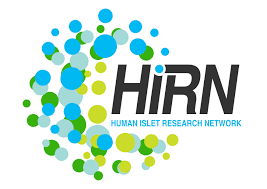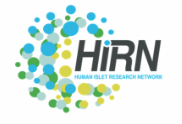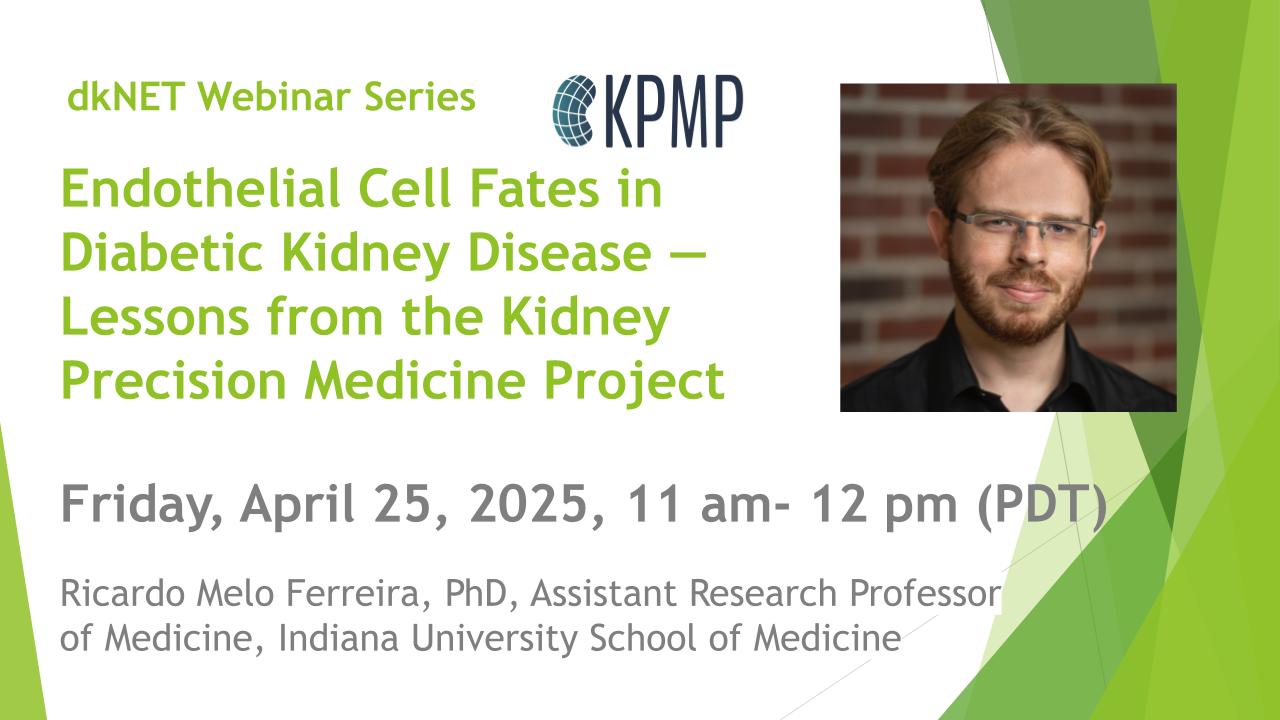Leaving Community
Are you sure you want to leave this community? Leaving the community will revoke any permissions you have been granted in this community.
NIDDK Funding Opportunity: NIDDK Information Network Coordinating Unit: dkNET-CU (U24 Clinical Trial Not Allowed)
Here is the information from the NIDDK:
"NIDDK Information Network Coordinating Unit: dkNET-CU (U24 Clinical Trial Not Allowed)
Funding Opportunity Announcement (FOA) Number: RFA-DK-22-017
Funding Opportunity Purpose
The purpose of this Funding Opportunity Announcement (FOA) is to continue development and expansion of the NIDDK Information Network (dkNET) under the direction of the dkNET Coordinating Unit (dkNET-CU). dkNET supports the NIDDK community’s needs in data science by providing an information portal that connects users to data, analytical tools, and other biomedical research resources. Additionally, dkNET supports researchers by providing a hub for data-driven hypothesis generation; a suite of tools that assist users in FAIR (Findable, Accessible, Interoperable, Reusable) practice, and in improving rigor and reproducibility in research; and a variety of programs to enhance community engagement and workforce development. The dkNET-CU will be responsible for providing the scientific direction, vision, and administrative management to advance dkNET goals.
Key dates
Open Date (Earliest Submission Date): February 28, 2023
Letter of Intent Due Date(s): February 28, 2023
Application Due Date(s): March 31, 2023
Pre-Application webinar: December 13, 2022, 3-4:30 pm ET (Registration deadline: December 5, 2022). https://www.niddk.nih.gov/news/meetings-workshops/2022/knowledgebase
Funding Opportunity Description
Background
The NIDDK information network (dkNET) was originally conceived in 2011 (RFA-DK-11-030) in response to community needs as biomedical research entered the Big Data era. The initial focus was on facilitating sharing of research resources that include animal models, antibodies, research reagents, experimental protocols, datasets, and tools, and related information within the NIDDK research community. A Resources Information Network (RIN) was developed that registered and organized the resources, including those obtained from NIDDK large collaborative projects, through a unique identifier called the Research Resource Identifiers, ie RRID. The RRIDs allowed research resources to be found, tracked and evaluated, and greatly enhanced research rigor and reproducibility. An information discovery portal was established that allowed users to query the RIN and be connected to the right resources. The program was renewed in 2017 (RFA-DK-17-010) and expanded. The added features included tools for promoting rigor and reproducibility in research, and for adherence to the Findability, Accessibility, Interoperability, and Reusability (FAIR) guiding principles, and a prototype platform facilitating data-driven hypothesis generation. A variety of community outreach, education and workforce development programs were also developed and integrated into the dkNET.
The community needs in finding, accessing, sharing, and reusing biomedical datasets, analytical tools, and other resources remain critical, along with needs in leveraging the emerging opportunities from data science. A significant fraction of data and resources of interest to the NIDDK community remain outside public databases or repositories, and information about them are difficult to find. Needs in handling many NIDDK-specific data types, such as glucose tolerance tests, calorimetric measures, and physiological and pathological phenotype measurements from diabetes technologies, are often not adequately addressed by NIH-wide data science programs. Public repositories and community standards for common data elements and metadata are frequently lacking for these data types. Individual investigators will also be navigating and complying to the latest NIH sharing guidelines and policies, such as the guideline for Rigor and Reproducibility in grant applications, and Data Management & Sharing Policy that will be enforced starting 2023.
Developing innovative strategies to enable sharing and utilization of data and research resources remains an important focus for NIDDK. While plans to invite and support sub-awards that may augment dkNET's outreach, community engagement, and workforce development functions are not requested in this announcement, additional funds may be made available at a later time to support and expand these activities.
Scope and Objectives
dkNET is a centralized, openly accessible data science resource for the NIDDK community to further research. The dkNET Coordinating Unit (dkNET-CU) will be responsible for providing the scientific direction, vision, and administrative management needed to advance dkNET goals. It will be expected to deliver services that address the NIDDK community needs in data science, assist a broad user base, and enhance the diversity of the NIDDK supported workforce. The goal of this initiative is to continue the dkNET program with the following objectives.
- Further develop and enhance the dkNET platform
To ensure the platform meeting the evolving community needs, the program will be responsible for developing and implementing the following:
- A catalog of curated, up-to-date, and annotated research resources relevant to the NIDDK research community, including but not limited to datasets, analytical tools, animal models, research protocols and reagents.
- A rigorous and sustainable indexing and tracking scheme for the resources; and searching capabilities that meet the needs of a diverse range of users, such as bench scientists, bioinformaticians, and the general research community.
- Employing advanced data science technologies including but are not limited to, natural language processing (NLP), semantic technology, Artificial Intelligence and Machine learning (AI/ML), to enhance performance, and to ensure that the platform will scale efficiently and sustainably with both the growing data volume and complexity. Making the platform friendly for AI/ML applications.
- Developing and/or integrating new and novel strategies to the platform for open science and cloud-computing.
- Quality and usage metrics of the research resources cataloged by dkNET, and tools to assist users evaluating the values of query results.
- Providing user-friendly interactive feedback to assist users navigating the dkNET web portal and identifying the most relevant information.
- Communication channels to collect community input and feedback to define their NIDDK-specific needs, and to develop use cases for enhancing functionality, user experience, and usage of dkNET.
- Engaging the community in enhancing current features, developing new functionalities, and defining metrics of success and evaluation strategies; and in developing and/or adopting data and metadata standards. Formalizing the decision-making process for new feature development and making this process transparent to the user community.
- Promoting rigor and reproducibility in NIDDK funded research by encouraging adaptation of appropriate persistent unique identifiers, such as RRIDs, for new protocols, reagents, model systems, and software packages; and by assisting in the development of authentication reports for key biological and/or chemical resources.
NIDDK has made significant investments in generating high-value, high-quality biomedical datasets in the past decade. However, these datasets remain largely under-interrogated. dkNET will be responsible for developing a centralized resource that catalogues these datasets, and enables tracking, curating, harmonizing and integrating these datasets, and in sharing the datasets together with their associated analytical workflows. These datasets include those that consist of heterogeneous data types that may be stored in separate data repositories. dkNET will be responsible for further developing data-to-hypothesis capabilities that enable users to interrogate such datasets with advanced computational tools to generate novel hypotheses for problems in diabetes, endocrinology and metabolic diseases. In addition, dkNET is expected to facilitate cross disciplinary collaborations and experimental validation of novel hypothesis.
- Enhancing the Diversity of the Bioinformatics Workforce
Consistent with the Notice of NIH’s Interest in Diversity (NOT-OD-20-031), NIDDK supports initiatives to enhance the diversity of the bioinformatics workforce. During the past funding cycle, dkNET organized summer student internships in data science, and supported a bioinformatics new investigator pilot funding initiative that was designed to recruit junior scientists seeking to apply innovative bioinformatics solutions to problems in diabetes, endocrinology and metabolic diseases. dkNET also established a seminar series, newsletters, discussion forums, and annual meetings to support NIDDK’s goals in bioinformatics workforce development. Developing more effective strategies for conducting outreach to students, trainees and young investigators from diverse backgrounds, and from under-represented and minority-serving institutions will be a priority.
- Partner with other NIDDK-funded programs
NIDDK supports centers including the Diabetes Research Centers (DRC), Centers for Diabetes Translation Research (CDTR); and both basic and clinical diabetes consortia, such as the Human Islet Research Network (HIRN), The Environmental Determinants of Diabetes in the Young (TEDDY), the Type 1 Diabetes TrialNet, The Type 2 Diabetes Knowledge Portal, Rare and Atypical Diabetes Network (RADIANT), and others. Most of these programs have data coordinating centers and/or analytics cores, and some have developed data archives and repositories, and knowledge portals. dkNET will partner with these programs, to directly and efficiently outreach to the NIDDK research community, and to enhance the community uptake of dkNET and dkNET’s impact.
dkNET may also form collaborations with NIDDK programs specifically designed to build a diverse, interdisciplinary workforce in diabetes, endocrinology and metabolic diseases research. Examples of these programs include the F31/F32 Bioinformatics Interdisciplinary Fellowship, the K25 Mentored Quantitative Research Award, the New Investigator Gateway Award, the NIDDK Catalyst Award. Trans-NIH programs aimed at building a diverse workforce in data science, such as the AIM-AHEAD, are also of interest. These partnerships will allow dkNET to provide junior scientists not only opportunities to enter interdisciplinary biomedical research, but also an open and interactive community that supports their continued growth and development.
See Section VIII. Other Information for award authorities and regulations.
Contacts:
We encourage inquiries concerning this funding opportunity and welcome the opportunity to answer questions from potential applicants.
eRA Service Desk (Questions regarding ASSIST, eRA Commons, application errors and warnings, documenting system problems that threaten submission by the due date, and post-submission issues)
Finding Help Online: http://grants.nih.gov/support/ (preferred method of contact)
Telephone: 301-402-7469 or 866-504-9552 (Toll Free)
General Grants Information (Questions regarding application instructions, application processes, and NIH grant resources)
Email: GrantsInfo@nih.gov (preferred method of contact)
Telephone: 301-945-7573
Grants.gov Customer Support (Questions regarding Grants.gov registration and Workspace)
Contact Center Telephone: 800-518-4726
Email: support@grants.gov
Xujing Wang, Ph.D.
National Institute of Diabetes and Digestive and Kidney Diseases (NIDDK)
Telephone: (301) 451-2862
Email: xujing.wang@nih.gov
Ashley Xia, M.D., Ph.D.
National Institute of Diabetes and Digestive and Kidney Diseases (NIDDK)
Telephone: (301) 480-9505
Email: ashley.xia@nih.gov
Thomas A. Tatham, Ph.D.
National Institute of Diabetes and Digestive and Kidney Diseases (NIDDK)
Telephone: 301-594-3993
Email: tathamt@niddk.nih.gov
1. Funding announcement: https://grants.nih.gov/grants/guide/rfa-files/RFA-DK-22-017.html
2. Pre-application webinar:
https://grants.nih.gov/grants/guide/notice-files/NOT-DK-22-034.html






